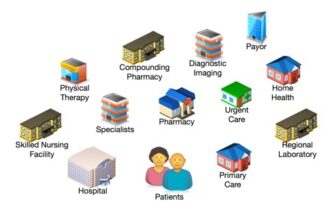Stephen C Schimpff, MD is a quasi-retired internist, professor of medicine and public policy, former CEO of the University of Maryland Medical Center. He chairs the advisory committee for Sanovas, Inc. and is a senior advisor to Sage Growth Partners.
Stephen C Schimpff, MD is a quasi-retired internist, professor of medicine and public policy, former CEO of the University of Maryland Medical Center. He chairs the advisory committee for Sanovas, Inc. and is a senior advisor to Sage Growth Partners. He is the author of The Future of Health Care Delivery- Why It Must Change and How It Will Affect You from which this post is partially adapted.
(Editor’s Note: Stephen Schimpff has been a member of our Advisory Board since the very beginning. He has given us numerous exclusive posts; here is his latest!)
Since the nomination of Congressman Paul Ryan last summer as the vice presidential candidate of the Republican Party, Medicare became front and center in the political discussions and, although there is less attention just now, it will return with a vengeance once again to dominate. To understand the dialogue requires an understanding of Medicare, how it works, where the money comes from, how it is spent and why there is such concern for its future costs. Here is an overview in a few bite sized pieces.
Medicare was designed in 1965 to serve as “major medical” insurance to cover the unexpected large expenses of, say, surgery or hospitalization. Individuals paid out of pocket for routine care. Medicare has morphed over the years; it now covers preventive care, screening, annual exams and most routine care. This broadening of coverage, the relentless rise of healthcare costs and huge enrollee additions by baby boomers will continue to increase Medicare expenditures.
Medicare covers about 50 million older Americans for general health care insurance and another approximately 8 million with coverage for disabilities and end stage renal disease.
Medicare pays about 75% of covered services and about half of the total costs of health care for older Americans, i.e., it pays for only certain specified medical services or “covered” costs. The remaining 25% of covered services as defined by Centers for Medicare and Medicaid Services (CMS) is paid for either via a private Medigap policy and/or out of pocket by the beneficiary. Since 2004, prescription drugs have also been covered.
Medicare is such a large part of the health care insurance market that it establishes two critical parameters for all of health care reimbursement. First, it sets the standard level for reimbursement which all other insurers ultimately follow.
Second, Medicare does not pay it full share of the costs it does cover. Basically it pays some percentage below actual costs leading the providers – hospitals, doctors, or other – to cost shift, i.e., charge their other patients who have commercial insurance a higher amount than costs to make up for what they did not receive from Medicare. What this means for the young person who has either a company sponsored health insurance plan or buys it directly in the individual market, is that he or she paying a “Medicare tax” over what the insurance would have otherwise cost. This is on top of the Medicare Trust Fund tax of 2.9%.
Government estimates are that Medicare will increase its expenditures over the coming decade at a rate of about 4% per annum. This is greater than both inflation and the GDP rate of growth. Medicare which now accounts for about 15% of the federal budget will rise from almost $600 billion per year now to about $1 trillion per year by 2022 – levels that will severely strain the capability of the system. Indeed, it a growth rate that is just not sustainable; it will eventually bankrupt the federal treasury.
Next: Where the money comes from and why it costs so much.









